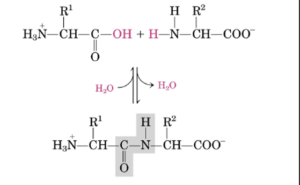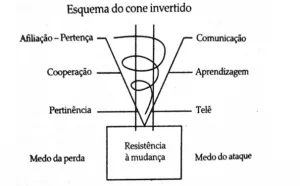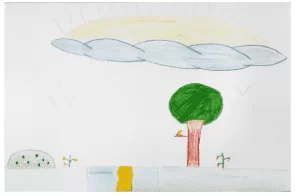ORIGINAL ARTICLE
DENDASCK, Carla Viana [1]
DENDASCK, Carla Viana. Refinement, personal development and meditative practices: introductory aspects. Revista Científica Multidisciplinar Núcleo do Conhecimento. Year. 07, Ed. 07, Vol. 02, p. 39-47. July 2022. ISSN: 2448-0959, Access link: https://www.nucleodoconhecimento.com.br/psychology/meditative-practices, DOI: 10.32749/nucleodoconhecimento.com.br/psychology/meditative-practices
ABSTRACT
This material is the first article of a sequence of fifty materials, which will have as main objective the construction of theoretical knowledge about refinement and personal development, and its pragmatic feasibility through the help of various meditative practices. Obeying the systematization of scientific rigor, each material will be organized based on a guiding question that will bring meaning to each material individually, even if it is part of a sequence. This time, the question highlighted here will be: what are the conceptual approaches and epistemes that make up refinement, personal development, and how do meditative practices help this process? In general, it is possible to observe that the human being is an individual in constant metamorphosis, who must always seek to develop themselves in order to act more effectively both in the personal and social spheres. Theoretical concepts are important as they support this process; however, meditative practices can be strategic tools to effectively execute this process, producing mental, social and physiological effects.
Keywords: Personal Development, Personal Refinement, Meditation.
INTRODUCTION
The guiding question of this material is: What are the conceptual approaches and epistemes that make up refinement, personal development, and how do meditative practices help this process?
If we did not have the resource of writing, or even a verbal resource to answer the question posed by this material, we could say that the concepts and episteme of this theme can be translated by the Greek aphorism: “Know thyself”.
Personal knowledge is a maxim sought not only by philosophers or religionists, but it has consolidated itself as an essential issue for contemporary society in all its complexity, and also as a means of sustaining the future of life on earth. This statement is made because personal knowledge is not only complex, but also requires techniques, different theoretical knowledge, meditations, and above all a lot of performance, dedication and willpower. If we are not able to know ourselves, how will we be able to know and live with the other?
The only problem is that we are all the time relating to each other, interacting in a network, depending on a range of people, who, like us, do not have complete self-knowledge; they have limited self-awareness; and that, at all times, they are interacting within a kind of estrangement to the other(s), which would justify the polarized behavioral tendency, and, consequently, the intransigence in the most diverse forms of relationships.
Knowing yourself can be so complex and difficult that in 1995, the book entitled “Emotional Intelligence” by Daniel Goleman, became one of the best-selling books in the world, adopted by leaders, professionals from different areas, even in the middle of the academic world, as a basis for conducting many researches. The work brought a new perspective on self-knowledge, defending intelligence in the treatment of emotions as a differential tool of being. Which may seem, at least initially, less complex than refinement and personal development on a constant basis.
According to Weisinger (2001, p. 14), “emotional intelligence is the intelligent use of emotions – that is, intentionally making emotions work in your favor, using them as an aid to dictate your behavior and your reasoning in a different way to improve their results”. However, being able to enable this self-control over personal emotions, and also develop cognitive competence to choose the type of emotion you want to feel, can be considered not only a challenge for some, but a true utopia if self-knowledge is not yet a reality.
However, we must not forget that self-knowledge occurs through a daily process, of construction and deconstruction of ideas and positions. Goleman himself (1989) in his book translated as: “The art of meditation”, emphasized that self-knowledge takes place through a process of constant development, and that it requires a commitment to reflective, meditative practices and the search for diverse knowledge.
Here, it is worth clarifying that the construction of knowledge for refinement and personal development works within a process of interdisciplinarity, multidisciplinarity and, also, transdisciplinarity, that is to say, that sometimes, the knowledge of areas is used in singular ways, at other times contributing to other areas, and in most cases being an area worked within the other, in a conceptual and epistemic mixture that transcends the very concept of discipline.
This time, this material aims to bring the main theoretical concepts and the episteme itself considered in the sequence of materials aimed at refinement and personal development through theoretical/philosophical knowledge and meditative practices.
REFINING AND PERSONAL DEVELOPMENT
Although knowledge takes place through a series of possibilities, interactions and processes, from genetic factors to social constructions and the subject’s cognitive abilities, understanding teaching and learning in the broadest sense is essential for personal development and refinement. Such a statement is justified, since individuals are different from each other, and, as different subjects, their personal teaching-learning process, and the way of relating to and understanding the other is also affected.
Diferente não significa simplesmente diverso. Não se trata de respeitar a diversidade e a diferença, mas de comprometer-se e aliar-se ao outro, reconhecer e compreender a luta histórica e situada dos grupos minoritários. A diferença está compromissada com as condições históricas, políticas, sociais, econômicas e culturais. Ela se apresenta, impõe-se, multiplica-se, potencializa-se (DELEUZE, 1988, p.96).
In this way, understanding the difference between the subjects, the teaching and learning process, not only in the school context, but in all its most diverse forms of performance, will be able to subsidize the individual’s awareness of his responsibility to himself and to others. As well as their responsibility for their ability to cognize the contents that are relevant to the theme of refinement and personal development.
Although most of the literature and scholars point to this search process as “personal development”, for this context, we are expanding it to “refinement and personal development”, because, despite acting concurrently, they are differentiated by their own understanding of the meaning of the word. While development points to growth, progress, the effect of developing something, such as creating habits, new beliefs, among others, refinement suggests the improvement of something that is already there, refinement, care. An example of this can be given about love, most people who have a child, do not need to develop love, because it is already there. However, refining love can involve a complexity of needs that are personal to each individual.
Thus, for the process of refinement and personal development to be effective, it is up to the individual to fully engage in the mission with commitment, after all, as Tardif (2002, p. 132) already advocated, “nothing and no one can force a student to learn if he does not commit himself to the learning process”, here we would change the word student for individual, because no one learns anything they really don’t want to, therefore, one must be open to finding new knowledge and willing to transform this knowledge into actions.
The individual who is inclined to investigate knowledge must commit himself to starting a long journey, seeking to transcend any kind of already rooted knowledge, false beliefs, models, traumas, ideologies, making himself available to find in knowledge the divine essence itself within yourself, and in the things around you.
The relationship between knowledge and divine essence has already been pointed out by some great names in history. Albert Einstein (1879-1955) said: “The more I delve into Science, the closer I get to God”. Francis Bacon (1561-1626) already pointed out as one of the most important names of the Scientific Revolution: “A little philosophy inclines the human mind to atheism, but the deepening in philosophy brings the human mind closer to religion”.
In the words of Louis Pasteur (1822-1895), considered the father of microbiology: “The more I study nature, the more I marvel at the work of the Creator.” And finally, in the Bible itself, appeals to the search for knowledge and wisdom are not rare, as it is possible to observe throughout the book of Proverbs, or even passages such as: “My people were destroyed for lack of knowledge…” (Hosea 4:6).
Of course, the list would be infinite, and that is not the purpose of this material, however, a very interesting point is highlighted; the fact of retaliation for the knowledge held by the church itself for years.
This puts us face to face with the need for knowledge for promotion and effectiveness, both knowledge and personal refinement.
MEDITATION AS A PRACTICAL TOOL IN PERSONAL REFINEMENT AND DEVELOPMENT
Meditation, in addition to being another form of knowledge, is a practical tool for various problems related to health, mind and spirituality.
Although in the West, knowledge about the benefits and meditative practices only took place after the 1970s, when a professor at Harvard Medical School, called Herber Benson, began to test the benefits of meditative practices on his hypertensive patients ( ASSIS, 2013).
This practice is found since the dawn of humanity, in cave paintings, and very widespread in the East, including specific guidelines in the Vedic texts. We can find it in the biblical text itself, where it is possible to observe that Jesus Christ withdrew for forty days to meditate and pray before beginning his three-year ministry that would culminate in his death.
What is up to us at this point is to highlight that there are several meditative techniques, some involving sound frequency, others, words, breathing techniques, or even movements, as in the case of Yoga. Some of these techniques will be pointed out as instructions at the end of each material pertinent to this sequence (APPENDIX 1).
Regarding the benefits of meditation, we agree with Goleman (1989):
Talvez o principal efeito da meditação seja proporcionar ao seu corpo um repouso profundo, enquanto sua mente se mantém alerta. Isto faz baixar a pressão sanguínea e diminuir o ritmo do coração, ajudando seu corpo a se recuperar do estresse. Muitos médicos usam a meditação como parte do tratamento de distúrbios como a hipertensão, dores de cabeça, dores nas costas, problemas de ansiedade, e para controlar ou diminuir dores crônicas. O repouso profundo propiciado pela meditação traz outro benefício: ele reforça o sistema imunológico que é a defesa do seu organismo contra bactérias, vírus e câncer. Talvez o efeito mais importante da meditação seja a paz interior, um refúgio onde você pode escapar da turbulência do seu dia a dia. O hábito de meditar diariamente vai lhe ajudar a desligar-se do estresse e trará calma e energia para você enfrentar melhor os desafios que vêm pela frente (GOLEMAN, 1989, p.5).
It is interesting to note that this statement was made by Goleman in 1989, before he gained renown with his book “Emotional Intelligence” in 1995, and that after that, a series of studies were published proving the effectiveness and efficiency of meditation. In the Pubmed database alone, a brief search found more than 3,000 studies published in the last five years on the benefits of meditative practices, from diseases such as Fibromyalgia (AMUTIO et al, 2018), Cancer (DENG, 2019), among many other benefits associated with quality of life.
Menezes (2009) carried out an investigation into the relationship between meditation time and physical and psychological well-being, attesting that even the initial techniques of meditative practices can be proven to be beneficial.
In this way, we could not think of tools to compose the theme of refinement and personal development without considering meditation as a practical and effective tool, especially, through so many scientific studies that prove its wide effectiveness.
FINAL CONSIDERATIONS
Recovering the guiding question of this material: What are the conceptual approaches and epistemes that make up refinement, personal development and how do meditative practices help this process?
It is observed that personal development and refinement is relevant to all individuals who want to evolve towards a better quality of life, mind, reasoning and spirit. There is not only a conceptual and epistemic basis for this process, but a set that can act in a multi, inter and transdisciplinary way as the themes that make up the breadth of being are developed.
REFERENCES
AMUTIO, Alberto, FRANCO, Clemente, SÁNCHEZ-SÁNCHEZ Laura C, PÉREZ-FUENTE, Maria Del Carmo, GÁZQUEZ-LINARES José J, VAN GORDON, William , MOLERO-JURADO Maria Del. Effects of Mindfulness Training on Sleep Problems in Patients With Fibromyalgia. Front Psychol. 2018 Aug 3;9:1365. DOI: 10.3389/fpsyg.2018.01365. PMID: 30147666; PMCID: PMC6096902.
ASSIS, Denise. OS BENEFÍCIOS DA MEDITAÇÃO: melhora na qualidade de vida, no controle do stress e no alcance de metas. Revista Interesp. n. 3, 2013.
DENG, GARY. Integrative Medicine Therapies for Pain Management in Cancer Patients. Cancer J. 2019 Sep/Oct;25(5):343-348. DOI: 10.1097/PPO.0000000000000399. PMID: 31567462; PMCID: PMC6777858.
DELEUZE, G. Diferença e Repetição. Rio de Janeiro: Graal, 1988. Tradução: Luiz Orlandi e Roberto Machado. ISBN 85-7038-071
GOLEMAN, Daniel. A arte da meditação. Edição Original, 1989. Traduzido por tradução Domingos DeMasi. – Rio de Janeiro : ed. Sextante, 1999.
MENEZES, Carolina Baptista. Por que meditar? A relação entre o tempo de prática de meditação, o bem estar psicológico e os traços de personalidade. Dissertação apresentada à Universidade do Rio Grande do Sul, 2009.
TARDIF, Maurice. Saberes docentes e formação profissional. Petrópolis, RJ: Vozes, 2002.
WEISINGER, Hendrie. Inteligência Emocional no trabalho: como aplicar os conceitos revolucionários da I.E. nas suas relações profissionais, reduzindo o estresse, aumentando sua satisfação, eficiência e competitividade. Rio de Janeiro: Objetiva, 2001.
APPENDIX 1- MEDITATION PRACTICE FOR BEGINNERS
- SIT IN COMFORTABLE – BREATHE IN DEEPLY COUNTING TO FOUR, RELEASE SLOWLY (EXPILE) COUNTING TO 8
- If you are a beginner = count 5 minutes
- If you have already practiced but don’t have much experience = 15 minutes
- If you can, start with 30 minutes
[1] Theologian. PhD in Clinical Psychoanalysis. Researcher at the Center for Research and Advanced Studies, São Paulo, SP.
Sent: July, 2022.
Approved: July, 2022.




